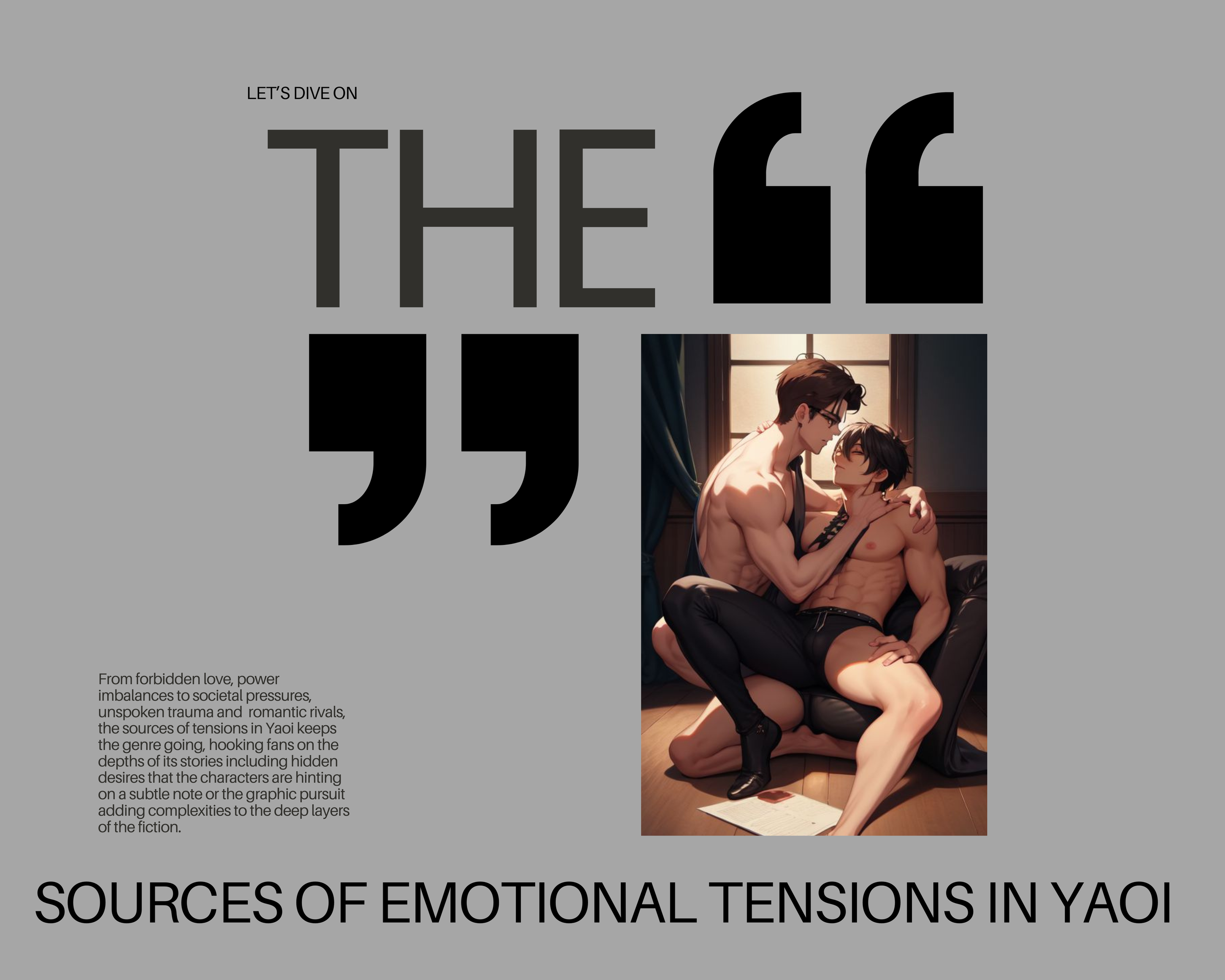Emotional Tensions
Yaoi has evolved from a niche genre into a global phenomenon, captivating audiences with its emotionally charged storytelling and exploration of same-sex male romance. While its signature often includes romantic fantasy and idealized relationships, one of the genre’s greatest strengths lies in its ability to evoke deep emotional tension. This tension doesn’t just keep readers engaged—it gives Yaoi its emotional resonance and enduring cultural impact.
But what exactly drives emotional tension in Yaoi stories?
1. The Allure of Forbidden Love and Social Stigma
One of the most powerful sources of emotional tension in Yaoi is the depiction of love in forbidden or unwelcoming settings. Often, characters must navigate a world that mirrors real-life societal rejection and familial disapproval of same-sex relationships. This conflict between personal desire and social expectations creates raw, visceral tension. It taps into a universal human experience—yearning for love while facing judgment—which adds a layer of authenticity to Yaoi’s otherwise romanticized and fictional worlds.
2. Power Imbalance and Unresolved Dynamics
Another major contributor to emotional tension is the presence of power imbalances and unresolved relational dynamics. Whether it's an age gap, a difference in social class, or structured relationships like teacher-student or boss-employee, these scenarios naturally create emotionally charged situations. Misunderstandings, dependency, and unspoken emotions come into play, generating a push-and-pull dynamic that keeps readers on edge. This unpredictability becomes a hallmark of Yaoi storytelling, adding layers of psychological complexity.
3. Miscommunication and Unspoken Feelings
Yaoi thrives on what’s left unsaid. Half-confessions, lingering gazes, and repressed facial expressions prolong the romantic development between characters. These moments create tension through anticipation—will they say how they feel, or won’t they? And yet, it’s precisely this prolonged emotional build-up that leads to the most satisfying moments: when a character finally opens up, realizing that love must be expressed, not just felt. These emotional breakthroughs provide cathartic payoffs for both the characters and the readers.
4. Past Trauma and Emotional Baggage
Many Yaoi characters carry emotional wounds from the past—be it childhood neglect, abusive relationships, or deep-seated self-loathing. These experiences shape how they approach love in the present, often creating internal conflicts that act as emotional landmines. Characters may push others away to protect themselves or repeat harmful patterns unknowingly. These layered portrayals of emotional trauma not only heighten the stakes of the romance but also underscore themes of healing and self-worth.
5. Jealousy, Rivalry, and Third-Party Intrusions
No Yaoi story is complete without a dose of jealousy or romantic rivalry. The presence of a third party—whether it’s an ex-lover, a love rival, or even a misunderstanding—injects insecurity into the central relationship. Love triangles, in particular, create dramatic suspense, testing trust and loyalty. These external forces often serve as catalysts for internal realizations, pushing characters to confront their feelings or fight for their love.
6. The Journey of Self-Discovery and Identity
Lastly, one of the most poignant sources of emotional tension in Yaoi is the internal struggle for self-acceptance. Many protagonists undergo personal journeys as they come to terms with their identities, battling fear, shame, or confusion along the way. This inner conflict not only adds emotional weight but also makes the romantic arc more meaningful. The relationship becomes not just about finding love with someone else, but also about embracing oneself fully.
While Yaoi is often associated with stylized romance and fantasy, its true emotional power lies in the tensions that underpin its narratives. From forbidden love and internalized trauma to unresolved dynamics and personal growth, Yaoi stories are rich with emotional complexity. These tensions don’t just create drama—they reflect the multifaceted realities of love, identity, and acceptance, making the genre as compelling as it is emotionally resonant.



